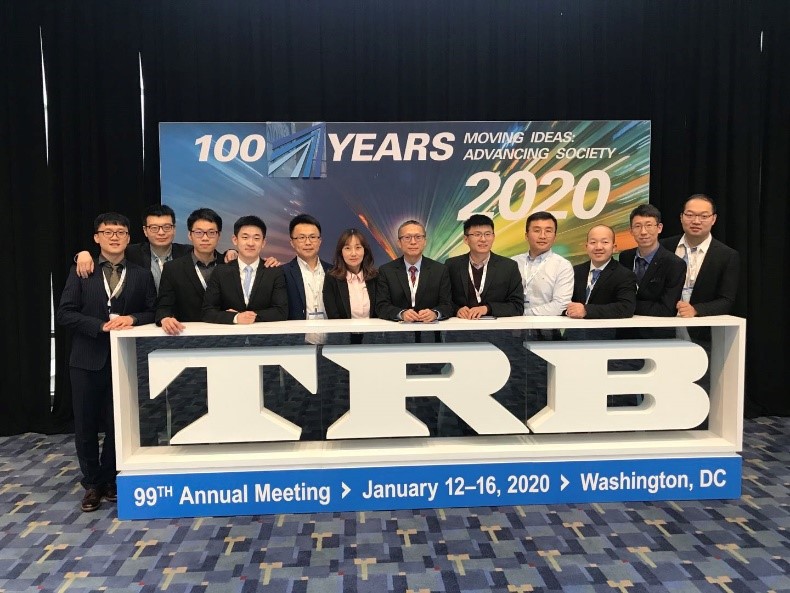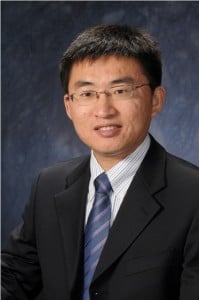Students and Faculty in CEE attended the 99th Transportation Research Board (TRB) Annual Meeting, which is known as one of the top conferences in highway engineering worldwide, held on January 12-16, 2020 in Washington, DC. Professor Zhanping You and his research team presented at the meeting. Jiaqing Wang and Dongdong Ge were awarded the “2019 IACIP outstanding graduate student award”, which was set up to reward students with outstanding achievements during the year with a cash award.
Dr. You attended the TRB meeting, serving as a moderator of a lecture session on “The Science of Snowfighting” and a poster session on asphalt binders. He also moderated the ASCE Bituminous Materials Committee(BMC). He accepted a new role as the Vice President of the International Association of Chinese Infrastructure Professionals (IACIP). He co-presented a number of papers and posters such as “Measurement and Modeling of Skid Resistance of Asphalt Pavement: A Review”, “Development of a Tire-Pavement Dynamic Friction Analyzer for Investigation of the Dynamic Friction Coefficient Between Tire and Pavement” and “Fourier Transformation Infra-Red Spectroscopic Analyses of Modified Asphalt Binders”.

Ph.D candidate Dongdong Ge presented a poster “The Influence of Aging on the Rutting and Low Temperature Cracking Performance of Rubberized Asphalt Mixture Using the Dry Process” and a TRB presentation on “Consumption of Scrap Tire with Eco-friendly Way.”
Recently graduated Ph.D. student Lingyun You gave an invited ASCE Bituminous Materials Committee presentation on “Advance Chip Seal Tests: Michigan Tech’s Interface and Shear Bond Tests” and an oral presentation on “Feasibility Study of Recycling CRT Glass in Water-Foamed Asphalt Mixtures in Low Volume Roads” in TRB ADC60 Committee.
Ph.D. candidate Xiaodong Zhou presented two posters titled “Discrete Element Simulation of the Internal-structure of Asphalt Mixtures with High Contents of Reacted and Active Rubber” and “Discrete Element Modeling Speedup of Asphalt Mixture Compaction: Effects of the Reduced Material Moduli.”
Ph.D candidate Dongzhao Jin shared his recent study with a poster named “DEM-Based on Asphalt Film Thickness vs. Seal Coat Performance” in the 10th IACIP Annual Workshop organized by the International Association of Chinese Infrastructure Professionals (IACIP).
Recently graduate Ph.D. student Ruizhe Si had a poster presentation on “Shrinkage Behavior of Glass Powder-Metakaolin-Based Geopolymer Under Different Relative Humidity Conditions.”
Tiankai Che presented his research by a poster on “An Erosion Test to Evaluate Moisture Damage of Cement-Treated Base Under Dynamic Water Pressure” in the 10th IACIP Annual Workshop organized by the International Association of Chinese Infrastructure Professionals (IACIP) and an invited presentation of “A New Method for Evaluating Moisture Damage of Asphalt Mixture Under Dynamic Water Pressure.”




 Guy Meadows (GLRC) is the principal investigator on a project that has received a $99,999 research and development grant from the Michigan Department of Environment, Great Lakes, and Energy.
Guy Meadows (GLRC) is the principal investigator on a project that has received a $99,999 research and development grant from the Michigan Department of Environment, Great Lakes, and Energy.


